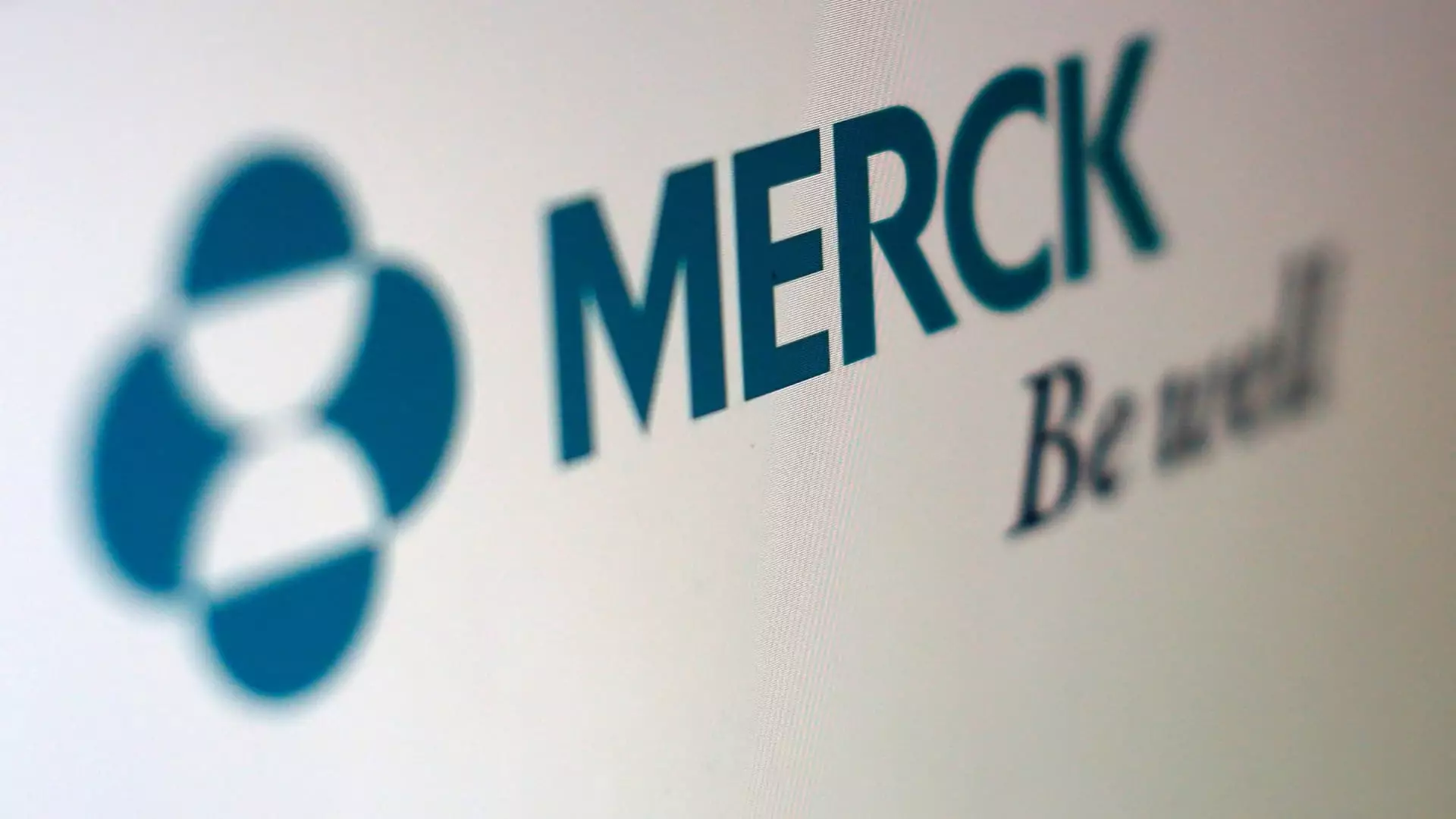The recent approval by the FDA of Merck’s Enflonsia, a monoclonal antibody aimed at protecting infants from respiratory syncytial virus (RSV), marks a significant moment in both public health and pharmaceutical competition. However, it’s impossible not to question whether this monumental step is truly beneficial or simply another product designed to capitalize on a vulnerability of desperate parents. The approval is timely, closely aligning with the impending RSV season, but considering systemic healthcare challenges, one must scrutinize whether the motives are altruistic or profit-driven.
Merck’s strategy to launch Enflonsia against the backdrop of an existing treatment from Sanofi and AstraZeneca, known as Beyfortus, raises issues around market saturation and medical necessity. Instead of focusing efforts towards collaboration and improving current options, the introduction of a nearly indistinguishable alternative could point to a troubling trend in the pharmaceutical industry—where profitability often supersedes genuine innovation in healthcare.
RSV: A Public Health Crisis or a Business Opportunity?
RSV, a respiratory virus that leads to significant mortality among the elderly and infants, has long posed a serious threat, particularly for newborns who face the highest risks of complications. Yet, even with the weight of this public health crisis looming over the industry, the frenzy surrounding Enflonsia’s approval already evokes skepticism. Yes, the statistics presented highlight a substantial reduction in hospitalizations due to RSV and related conditions when infants are administered this shot; yet, one must ponder whether the objective here is truly to decrease health costs for families or if the grander goal lies in line charts of profit margins.
In a field that has often been criticized for prioritizing earnings over health, does Merck’s compulsive push for market share offer a genuine solution or merely a retreat into a competitive battlefield? Healthcare is not a zero-sum game, yet the threat of oversaturation could lead to confusion within medical communities and families trying to navigate existing treatment options.
Dosing Dynamics: A Double-Edged Sword
One notable distinction between Merck’s Enflonsia and its competitor Beyfortus is how each medication is dosed. While the latter requires adjustment based on an infant’s weight, Enflonsia sidesteps these complexities entirely, simplifying administration. This apparent convenience is indeed a positive aspect, yet we should ask, at what cost does simplification come? The press release from Merck breathes optimism, suggesting this new protocol may ease logistical burdens, but this may also open the door for misuse or misunderstanding.
Healthcare practices should be fundamentally influenced by informed decision-making rather than compliance with ease of access. Simplifying dosing to the extent that it undermines the nuance required for medical care runs the risk of trivializing the importance of monitoring weight-sensitive medication—a matter that should be treated with care and diligence.
The Market Landscape and Future Implications
As the pharmaceutical industry grapples with the complexities presented by the approval of Enflonsia, it is worth considering the broader implications for public health. The market already caters to RSV with vaccines by Pfizer, GSK, and Moderna designed for adults and pregnant women, but there remains a void when it comes to the most at-risk population: infants. Will the presence of multiple treatment options drive innovation, or does it merely divert attention and resources from the systemic improvements needed across the entirety of pediatric healthcare?
A concern also arises from the pressure that FDA actions place on ongoing trials surrounding RSV vaccinations for children at risk. The recent halt in trials illustrates the growing unease surrounding safety—a pertinent reminder that rushing towards a market solution must not overshadow the greater commitment to ensuring the safety of these vulnerable populations.
The Responsibility of Pharmaceutical Initiatives
Merck’s focus on ensuring availability before the RSV season rolls around speaks volumes about the urgency felt among companies. But as the healthcare landscape evolves, so too must the ethical considerations surrounding pharmaceutical developments and the moral imperative to create genuine, lasting change in vulnerabilities. If each new treatment merely shifts the burden of healthcare needs without addressing root causes, we risk perpetuating an industry that thrives on illness rather than genuine care and healing.
Ultimately, while Enflonsia may emerge as a critical component of the fight against RSV, the underlying complexities and intentions merit our critical examination. It’s necessary to challenge the narrative of innovation amidst competition, questioning whether we’re witnessing a revolution in care or merely a repeat of history—fuelled by business interests rather than the visceral need for progress in public health.

Leave a Reply